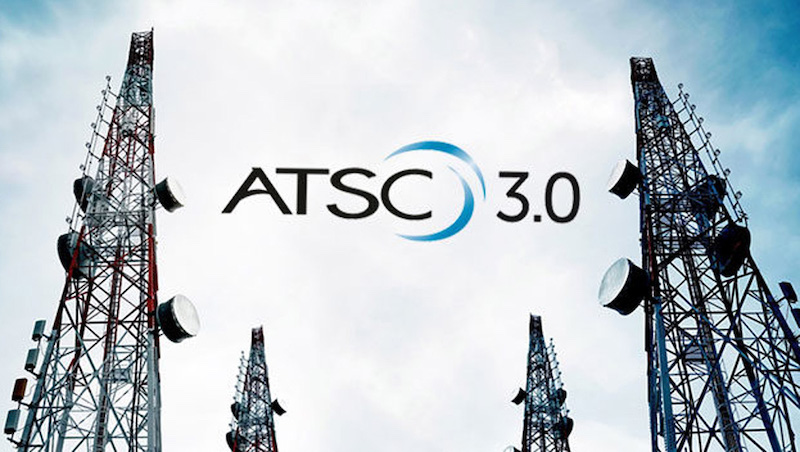Broadcasters Ask FCC to Dismiss Cable ATSC 3.0 Concerns
Call them self-serving comments and effort to relitigate retransmission consent

The smarter way to stay on top of broadcasting and cable industry. Sign up below
You are now subscribed
Your newsletter sign-up was successful
Pearl TV, the consortium of TV stations advancing NextGen TV, took aim at cable operators in a meeting with FCC commissioner Nathan Simington.
That is according to a Federal Communications Commission document on the meeting.
Pearl TV was pitching a National Association of Broadcasters petition to clarify the application of the FCC’s ATSC 3.0 (NextGen TV) rules to multicast streams. Those are the extra channels broadcasters got in the switch to digital.
Also: ATVA Says FCC Should Mandate HD Before Allowing Broadcast Internet
“The proceeding is a narrow, technical one, that clarifies broadcasters can partner with each other to enable hosting of multicast streams (as only primary streams are addressed in the current ATSC 3.0 rules), and that multicast streams can be transmitted in either ATSC 1.0 or ATSC 3.0, without a simulcast requirement,” Pearl TV said. “Comments and reply comments are in, and they show remarkable consensus that the FCC should adopt the core principles of the proposed rule. The Commission should disregard self-serving comments that clearly do not seek to benefit the public, such as the limitations on the number of multicast streams that ATVA and NCTA are asking the Commission to impose or to turn this proceeding into a relitigation of the debate on retransmission consent.”
In November 2021, the FCC tentatively concluded that NextGen TV broadcasters — ones with signals in the ATSC 3.0 standard — should be granted a sublicense of sorts to allow them to contract with another “host” station or stations to carry their simulcast multicast streams, whether that is in ATSC 3.0 or the current 1.0 format.
The FCC is allowing stations to partner on distribution arrangements so that broadcasters can continue to deliver a primary TV station signal stream in ATSC 1.0 given that ATSC 3.0 is not backward compatible with current sets.
The National Association of Broadcasters, in that petition for declaratory rulemaking, wanted the FCC to declare "that various multi-station arrangements for hosting and originating multicast streams in ATSC 1.0 and 3.0 are OK."
But cable operators represented by NCTA-the Internet & Television Association, want the FCC to limit the number of multicast streams a station can host for another station.
In addition, the American Television Association (ATVA), which comprises cable and satellite operators and others, said the FCC should explicitly prohibit non-simulcast multicasting to become de facto affiliation swaps that "either created new local duopolies, automatically raised retransmission consent prices, or both." Currently FCC rules do not prevent two top-four network-affiliated station signals being delivered by one station owner if they are multicast fees."
ATVA told the FCC that “just as the nonsimulcast multicast regime should [not] become a new tool to evade the local media ownership rules generally, it should not become a tool to evade the affiliate-swap rule more specifically.” ■
The smarter way to stay on top of broadcasting and cable industry. Sign up below
Contributing editor John Eggerton has been an editor and/or writer on media regulation, legislation and policy for over four decades, including covering the FCC, FTC, Congress, the major media trade associations, and the federal courts. In addition to Multichannel News and Broadcasting + Cable, his work has appeared in Radio World, TV Technology, TV Fax, This Week in Consumer Electronics, Variety and the Encyclopedia Britannica.

